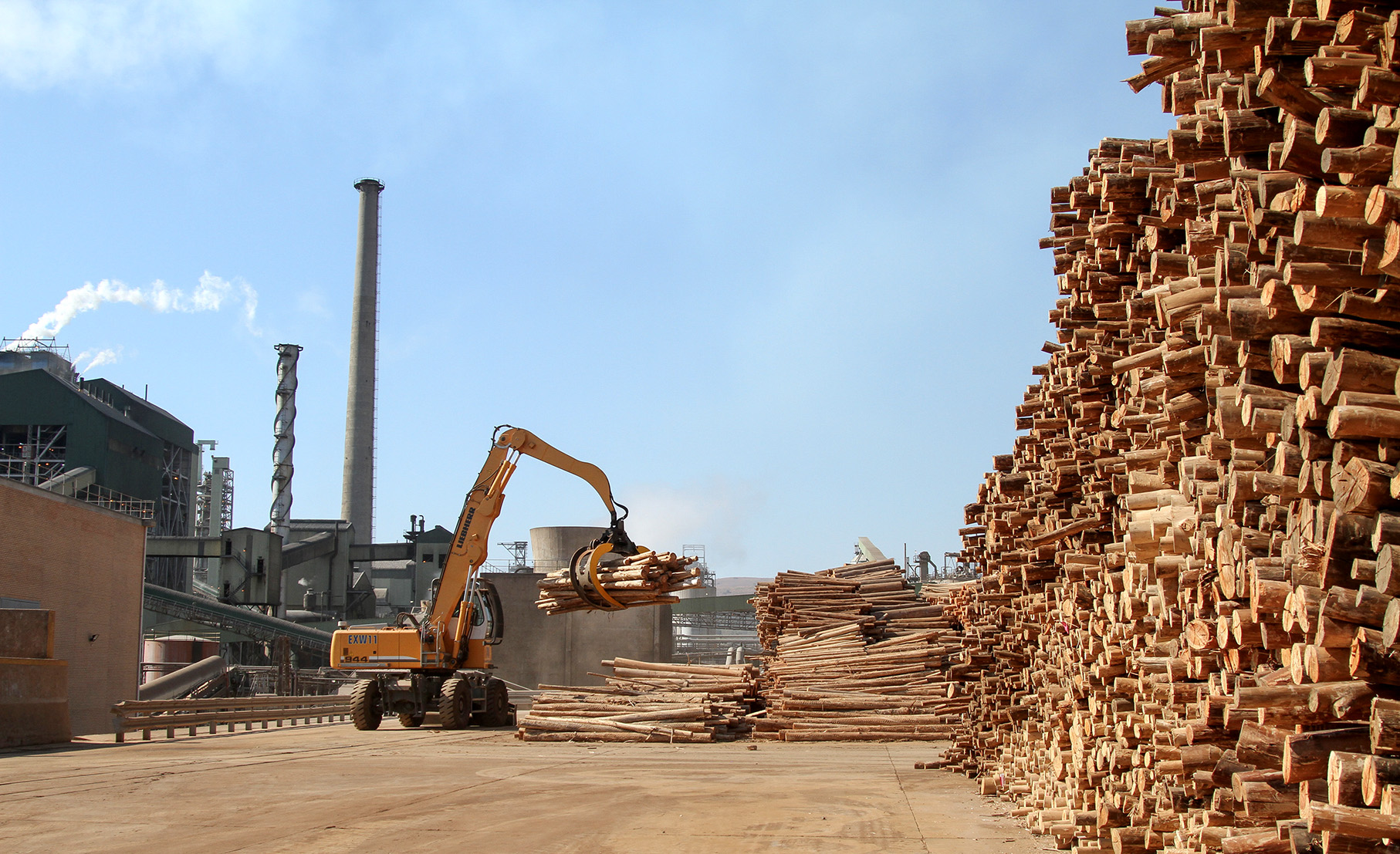The share price of JSE-listed pulp and paper heavyweight Sappi plunged on Thursday, 8 May 2025, as the company warned that key exports to China were shrouded in a forest of uncertainty.
“The textile and apparel market, with its long and complex supply chain, is particularly vulnerable to ongoing trade tensions and inflationary pressures,” Sappi said in its results update for its second quarter to the end of March.
What do textiles and clothing have to do with forestry products?
Well, viscose staple fibres (VSF) or rayon, a fabric, and dissolving wood pulp (DWP) are, like cotton, crucial ingredients in the manufacture of clothing. You may well be wearing something that includes this material as you are reading this sentence.
“Demand for VSF and DWP in China has slowed in recent weeks as the value chain assesses the implications of these newly imposed (by US President Donald Trump) tariffs,” Sappi said.
![]()
“The escalating tariff trade tensions initiated by the United States against key trading partners introduces a high level of uncertainty into the global macroeconomic outlook, which poses risks to our financial performance.”
Sappi’s share price tanked more than 15% in morning trade on Thursday on this sobering outlook. The company also slumped to a loss of $20-million for the quarter compared with a profit of $29-million in the same period last year, but it was the uncertain outlook that unleashed the chainsaw on its share price.
Sappi’s woes underscore the ripple effects throughout global supply chains that have been triggered by Trump’s trade wars, often in unexpected ways.
“We export DWP out of South Africa, which predominantly goes to Asia, mostly China, (where it) is ultimately used to make clothes. And at the moment with these trade tariffs, the American retailers have slowed their purchases of clothes moving out of China,” Sappi CEO Steve Binnie told Daily Maverick in an interview.
“Everything is coming to a standstill at the moment. The US imports something like 95% of its clothing. The long-term (picture) I’m not concerned about, Americans will still have to buy clothes,” he said.
Either that or the US will become the world’s largest nudist colony. Social media has been aflame with memes of Americans undertaking the dreary task of making clothes in sweatshops.
But Trump has vowed to bring manufacturing jobs back to a country where the vast majority of the population has been happily buying cheap Chinese-made stuff from Walmart for decades — that’s a key reason why until recently inflation in the US has generally been benign for decades.
“Even cotton, a lot of cotton is imported into China to make the garments and clothing. It’s not just us, it’s across all the different drivers,” Binnie said.
What this means for you
As Trump’s trade wars, especially with China, bite South African industries, the domestic economy and confidence will decline. That will affect your investment portfolio if you have exposure to South African primary producers and possibly sap your own confidence in the economy and spending habits.
Sappi will hardly be alone among South African companies to feel the indirect pain of Trump’s eye-watering 145% tariffs on Chinese imports.
China imports a range of raw materials from South Africa that are fed into its production chains for export to the US.
And even where this is not the case — for example, little of the steel that China makes from South African iron ore is destined for the US — the impact of Trump’s trade wars are slowing global economic growth, and that in turn will depress the prices of many South African commodities with the exception of gold, which thrives on mayhem and uncertainty.
Sappi’s results on Thursday are the canary in the coal mine that is the South African economy. The consequences of Trump’s trade wars will still reveal themselves in many and unanticipated ways. DM
If you wish to comment on this issue, please send an email to letters@dailymaverick.co.za
Letters will be edited.





